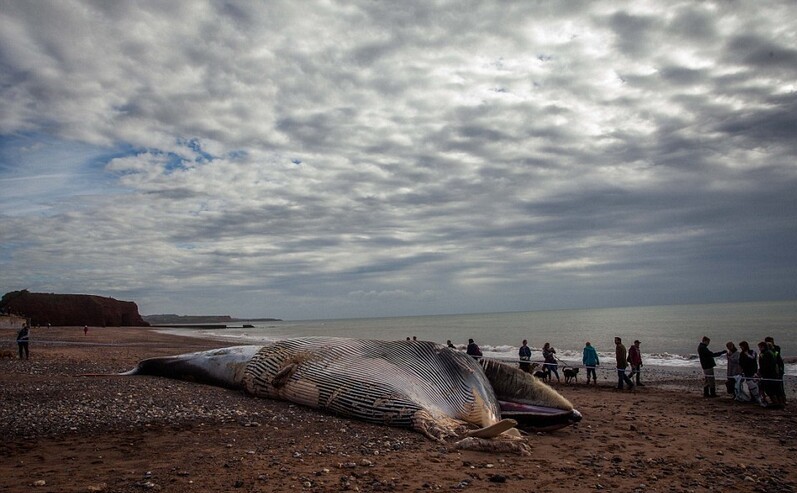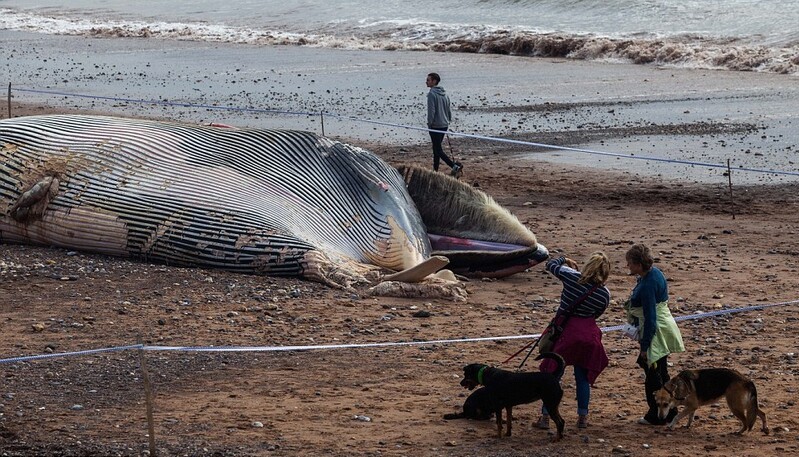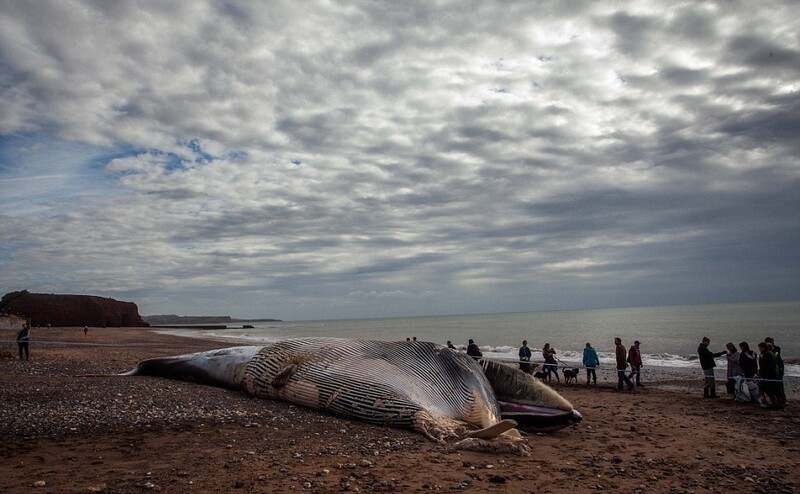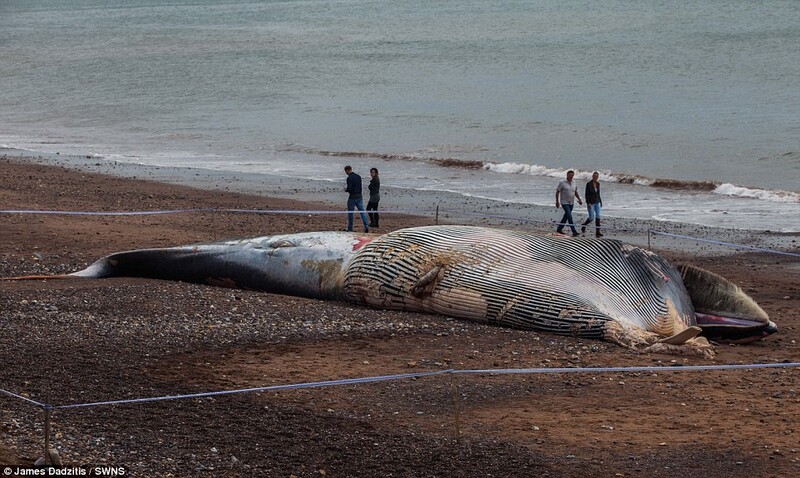A Massive 50-Foot-Long Fin Whale’s Decomposing Body Washed Ashore on a Popular Beach on Britain’s South Coast: Concerns Mount Over Potential Explosion

A shocking and gruesome sight unfolded on a popular beach along Britain’s picturesque south coast as the decomposing body of a massive 50-foot-long fin whale washed ashore. The lifeless carcass was discovered on Red Rock Beach near Dawlish, Devon, eliciting both fascination and concern from onlookers.

To ensure public safety, authorities swiftly erected a cordon around the decaying creature, preventing curious individuals from getting too close. However, the presence of the enormous whale raised additional worries that the bloated body, filled with accumulating gas, could potentially burst, posing a risk to those in the vicinity.

The origins of the whale remain a mystery, although reports indicate that it had been tracked in the sea for approximately a month before making its final appearance off the coast of France. Stranding investigator Robert Deaville from the UK Cetacean Strandings Investigation Programme confirmed that the carcass belonged to a fin whale, correcting earlier misidentifications that labeled it as a sperm whale.

Distinctive black and white coloration on the plates hanging from the side of its mouth definitively identified the species. Fin whales, typically found in deeper waters, are rarely encountered in such proximity to the shore. Deaville, with decades of experience in monitoring strandings, explained that only two or three fin whales wash up on British shores each year out of the approximately 600 stranded cetaceans.
Despite the deteriorated state of the carcass, Deaville expressed his intention to return to the site to collect samples and gather data in an attempt to unravel the circumstances surrounding the whale’s demise. However, the advanced decomposition may hinder a comprehensive post-mortem examination.

The responsibility for disposing of the colossal carcass lies with the council. Options for disposal range from landfill, either intact or divided into pieces, to incineration. In more isolated areas, burial or leaving the carcass in situ might be feasible, but due to the public nature of Red Rock Beach, the body will inevitably need to be relocated and appropriately disposed of.
While this unfortunate event represents a tragedy, Deaville emphasized its potential for learning and understanding the species better. He noted that the fin whale population is gradually recovering, and an increase in strandings suggests a larger number of these magnificent creatures inhabiting the surrounding waters.

As onlookers gathered to witness the rare and somber spectacle, the unpleasant odor emanating from the decaying whale served as a poignant reminder of nature’s fragile and cyclical processes. The incident also serves as a sobering reminder of the dangers associated with handling whale carcasses, as demonstrated by a previous incident in 2013 when a beached sperm whale exploded in the Faroe Islands, endangering those nearby.
As authorities work to ensure the safe removal and disposal of the fin whale’s remains, this extraordinary encounter stands as a haunting testament to the awe-inspiring yet delicate nature of marine life, prompting reflection on our role in its preservation.



